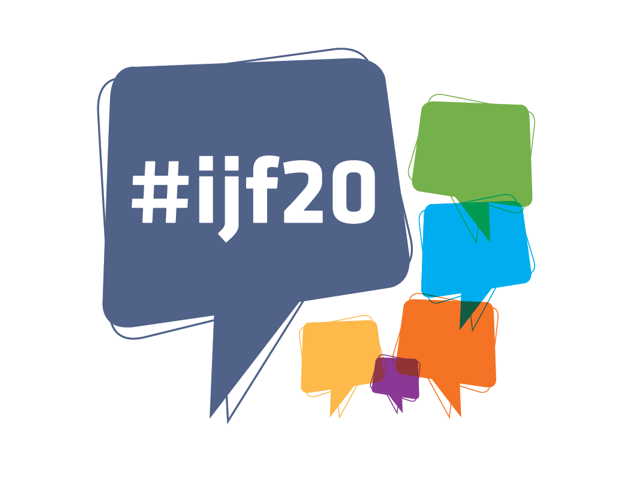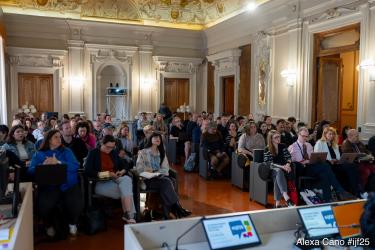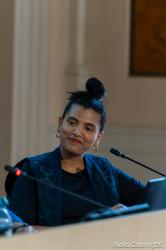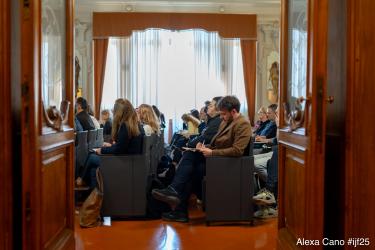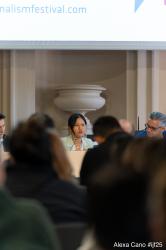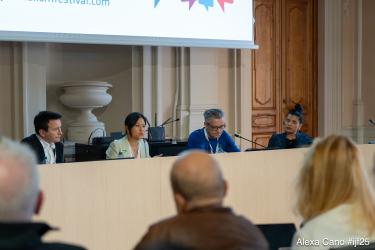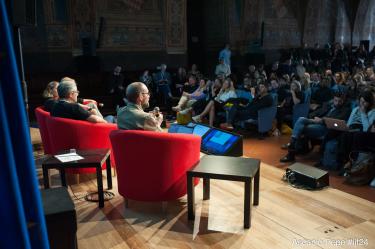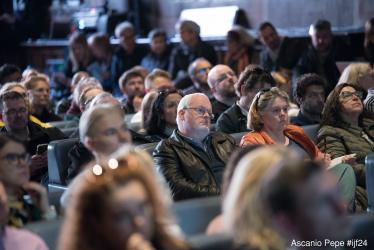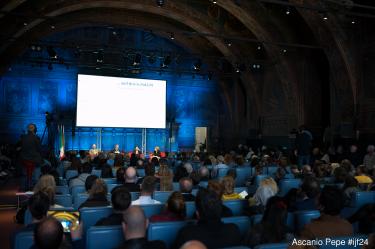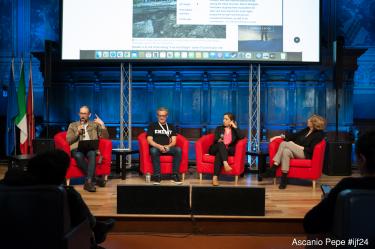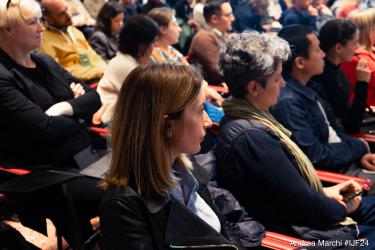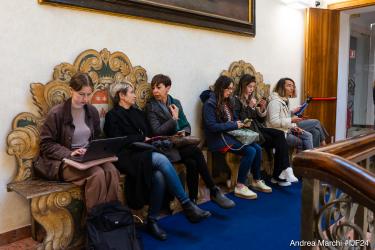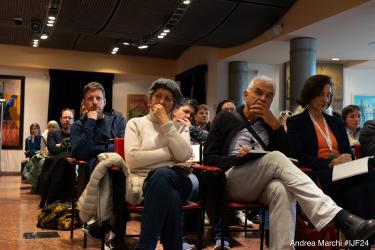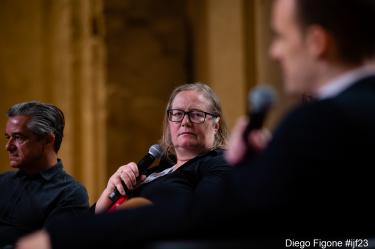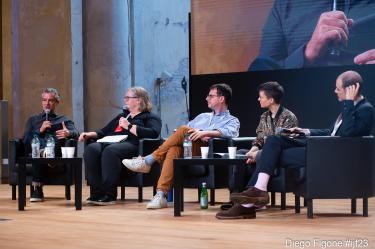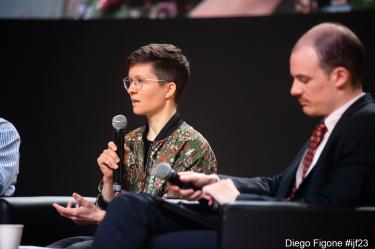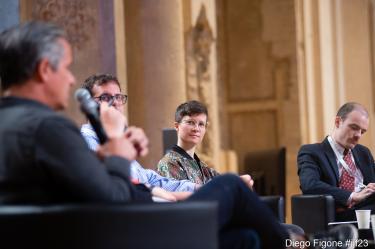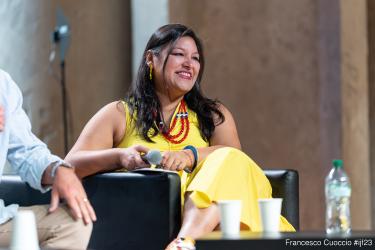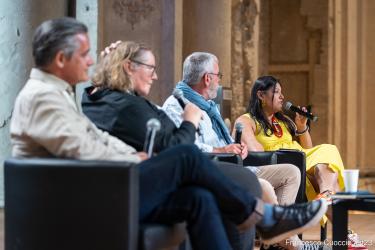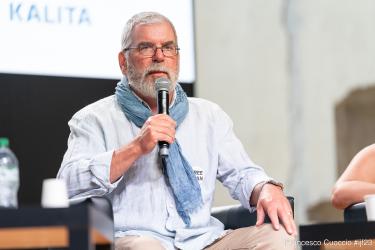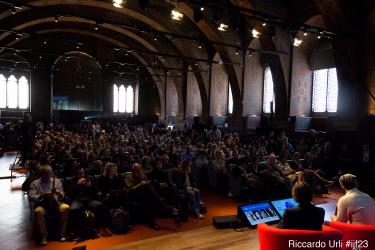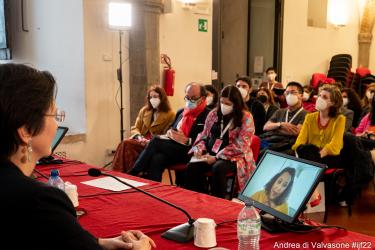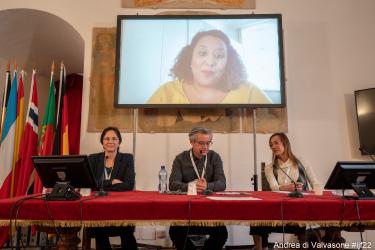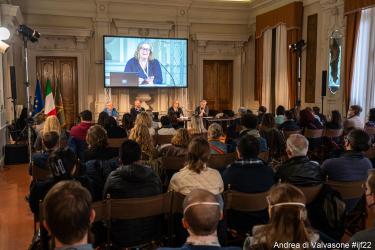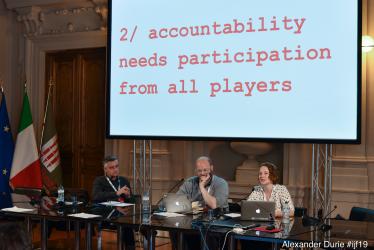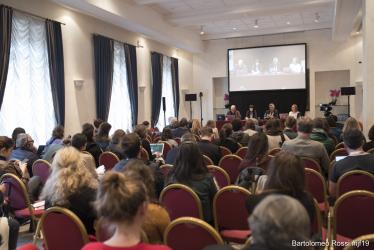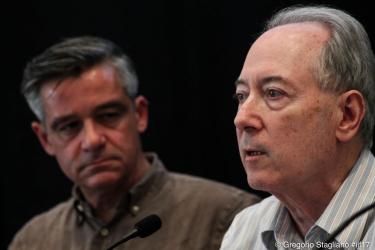There has been a heated debate over the last two years about the opportunities and risks of generative AI. This discussion will seek to identify the key trends, positive and negative. It will explore ...
Charlie Beckett
director Polis London School of EconomicsWhat does an LLM search inventor and scientist know that journalists do not? As artificial intelligence transforms how information is created, distributed, and consumed, newsrooms face fundamental que...
Generative AI is an epochal development – less like social media and more like the advent of the internet itself. The session will showcase how news organizations around the world are beginning to h...
Artificial Intelligence (AI) is revolutionising how we gather, process, and disseminate information. The future impact of this revolution hinges on our technological choices. This panel will address c...
The elephant in the room: could AI give technology giants more control over the news?
If you attended any news conference in recent years, one thing will have stuck out: almost everyone seems to be excited by the possibilities of using artificial intelligence for journalism. And indeed...
What happens to journalism now that Twitter is dying and Facebook doesn't care about the media any more?
Rightly or wrongly, a lot of journalists and publishers have come to rely on Twitter and Facebook to promote their work, reach audiences, respond to criticism, and in some cases generate revenue. Twit...
AI is now part of news gathering, production and delivery around the world, from small specialist newsrooms to global organisations. But how is changing the journalism created and what impact will it ...
Leadership will be critical in the success of news organisations adapting new AI technologies. Automation, personalisation and data-driven innovation demands a strategic approach forged by editors and...
Should media organizations and journalists accept funding from Google and Meta?
Over the past few years, Google and Meta have given hundreds of millions of dollars to journalistic organisations, and have said they plan to give away hundreds of millions more. Some believe this kin...
From hidden connections in big data to bots spreading fake news, journalism is increasingly computer-generated. Nicholas Diakopoulos, author of the book Automating the News: How Algorithms Are Rewri...
A conversation on what new skills will be needed in the newsroom in order to benefit from the potential of AI technologies. The audience will leave with a better understanding of how AI might change r...
As states and corporations increasingly load decision-making onto artificial intelligence technologies and algorithms, how can we as journalists keep them in check? How do you hold an algorithm to acc...
Nationwide collaborations on local investigative reporting in Germany and the UK
Newsrooms at local and national level are facing a financial crisis that means more expensive investigative reporting is under threat. Yet there has never been more need for journalism that holds powe...
Pitfalls of over-reacting to populism: the relationship between populism and the media
'Populist' politics are on the rise around the world. These movements have been boosted by their success at capturing attention on social and mainstream media. Often they are a direct challenge to mai...
The journalism/academic divide in the post-truth era. The session will focus on the ongoing challenges for researchers to make their work relevant to both journalists and the academy, and the frustra...
In a world where people pay attention to journalism because of their beliefs and feelings, why bother with objectivity? Can you have subjective journalism without feeding the fake news frenzy? Does pe...
Facebook and Arizona State University (ASU) last month brought 50 educators, academics, journalists, technologists, platforms and third party organizations together for a working group on news literac...
Journalism after Snowden: the future of the free press in the surveillance state
In the age of heightened surveillance, the need for - and threat to - watchdog journalism has intensified, with Edward Snowden’s 2013 leak of classified documents signaling what may become a new nor...
The miscalled “refugee crisis” has been one of the most widely reported news stories by the international press. Does quantity equal a true capacity to break the wall of habit? How can one keep...
The session will take as its starting point the issues raised in Jonathan Albright's Guardian article of 09 December 2016 entitled Stop worrying about fake news. What comes next will be much worse.
It’s been over two years since the Snowden revelations, and the debate about surveillance, civil liberties, national security and counterterrorism continues. Journalists around the world face impe...
Traditional news has tended towards highlighting the negative: what has gone wrong and the problems it causes. But is it possible to have tough, critical journalism that also looks for solutions and...
Thanks to social media everyone can have an opinion and a voice, but should journalists get personal too? Emotional imagery and words are a great way to get traffic on social media or to get an aud...
Men dominate the news headlines and bylines so much that the media has been described by a British MP as an 80/20 society with women in the minority. What’s more, women are far more likely to be p...
As news industry globalisation races on at full steam the resilience and indeed the growing success of hyperlocal news might appear paradoxical. What’s its secret? Much emphasis is given to the no...
The new civic journalism How can new technologies be used to provide public interest journalism? Is WikiLeaks and social media the way to hold power to account through the internet? Heather Brooke, t...
Kony2012: 100 million views online. Conclusions? Kony 2012, the controversial 30-minute video produced by the non-profit association Invisible Children, which in the space of a little more than a w...
After phone-hacking: cleaning up journalism The phone-hacking scandal at Rupert Murdoch's News International has led to a wide-ranging inquiry by Lord Leveson into the ethics of the British press. ...
This year marks the Columbia Journalism Review's 50th anniversary, and in the anniversary issue CJR online editor Justin Peters edited a section that looked ahead to the next fifty years of news. Ne...











